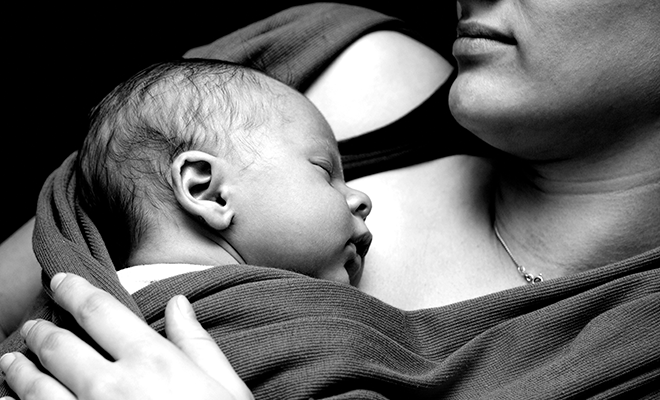
Love Yourself and Your Baby: Warding off Postpartum Depression
Having a baby is one of, if not the most, earth-moving experiences a woman can have. That being said, emotions can run rampant as her body changes to envelop this new tiny human she will bring into the world.
Having a baby is a personal victory. It is a God-given miracle and the singular most personal feeling. Along with that intensely spiritual moment can come a heaviness.
“When my son, Moses, came into the world in 2006, I expected to have another period of euphoria following his birth. Instead, I was confronted with one of the darkest and most painfully debilitating chapters of my life.” This is how actor Gwyneth Paltrow described her symptoms. Post partum depression can happen to any woman, regardless of how prepared she is and how joyously the child is welcomed into the world.
Postpartum depression, or PPD, is described as a serious mood disorder that affects women after childbirth. It creates feelings of sadness, anxiety, depression and exhaustion. Approximately one in seven women experience PPD, but only 15 percent receive treatment.
The first step is to recognize it. Normal baby blues should dissipate within two weeks of birth. Beyond that, lingering or worsening anxiety or drastic changes in mood may indicate a perinatal mood or anxiety disorder.
The other side of PPD is postpartum obsessive compulsive disorder, or PPOCD. This is one of the most under-recognized postpartum mood disorders. Between two and three percent of new mothers suffer from PPOCD. The main difference in this and OCD is that mothers who develop it in the postpartum period focus their obsessive, bizarre thoughts on their baby and have extreme worry about their baby coming to harm, even including fear they will drown their child during bath time. This results in repetitive behavior, including repeatedly sterilizing baby bottles or checking on the child an excessive number of times. Rarely do moms with this disorder in fact cause themselves or their baby harm, and professional help is definitely the answer to calming this disorder. Again, it is important to recognize it.
Note that negative thoughts can bring on PPD. Challenge yourself each day and fight negativity with tiny moments such as baby tummy snuggles, good coffee, a hot bath and baby powder! Stay clear of unsupportive people, but remember that isolation can breed anxiety, so find a support group of like-minded moms. Nevertheless, don’t wait too long to get the help you need. In fact, difficulty making decisions is a symptom of PPD. Do not try to diagnose yourself. You have enough on your plate. Leave that to a professional you trust.
To stay on the happy side of life, avoid scary movies, creepy books, websites and shows. Try to surround yourself with positive images to keep upsetting thoughts from sticking in your mind and dreams. Incessant Internet searches can be intriguing but also detrimental. Try to find safe sites with verifiable research-based information.
During pregnancy, and right after, there are ways to ward off the anger and insomnia and other symptoms associated with PPD. Omega 3 helps; it can be found in foods such as salmon, tuna, white fish, walnuts, chia seeds, herring, flax seeds, hemp seeds and egg yolks.
Stay calm. Through your pregnancy and when you go into labor, use any methods that help, such as your favorite music on your smart phone, yoga, breathing, warm water; it’s widely recognized that calm moms produce more contented babies.
Another preventive measure coming into the limelight is the practice of placentophagy, which is eating the placenta, or afterbirth. Midwives freeze dry it and then the mother can take it as pills. It is an age-old custom, and women who have tried it say it helps with the production of breast milk and prevents depression. January Jones of Mad Men fame has publicly discussed that she took the placenta pills after the birth of her son to help avoid the baby blues and keep her energy up.
Pregnant and new moms may experience a wide variety of symptoms of prenatal, antenatal or postpartum depression or anxiety. Just as the preventive measures differ, one size can’t fit all. Every woman with PPD or PPOCD looks and sounds completely different from the next.
When that little warm, sweet boy or girl comes into your world, and you still can’t get into your favorite jeans, remember, the best is yet to come. Confidence can be hard to muster, and it is never how you thought it would be. With time, you’ll be a pro at that car seat, breastfeeding will be second nature, and the diaper bag will become your purse! Years of good times await. Just remember to tell yourself they may not be the first weeks, or even months, of mommyhood ■
Sources: postpartumprogress.com, postpartumdepression.org, parents.com, whattoexpect.com and www.pregancy-info.net.







